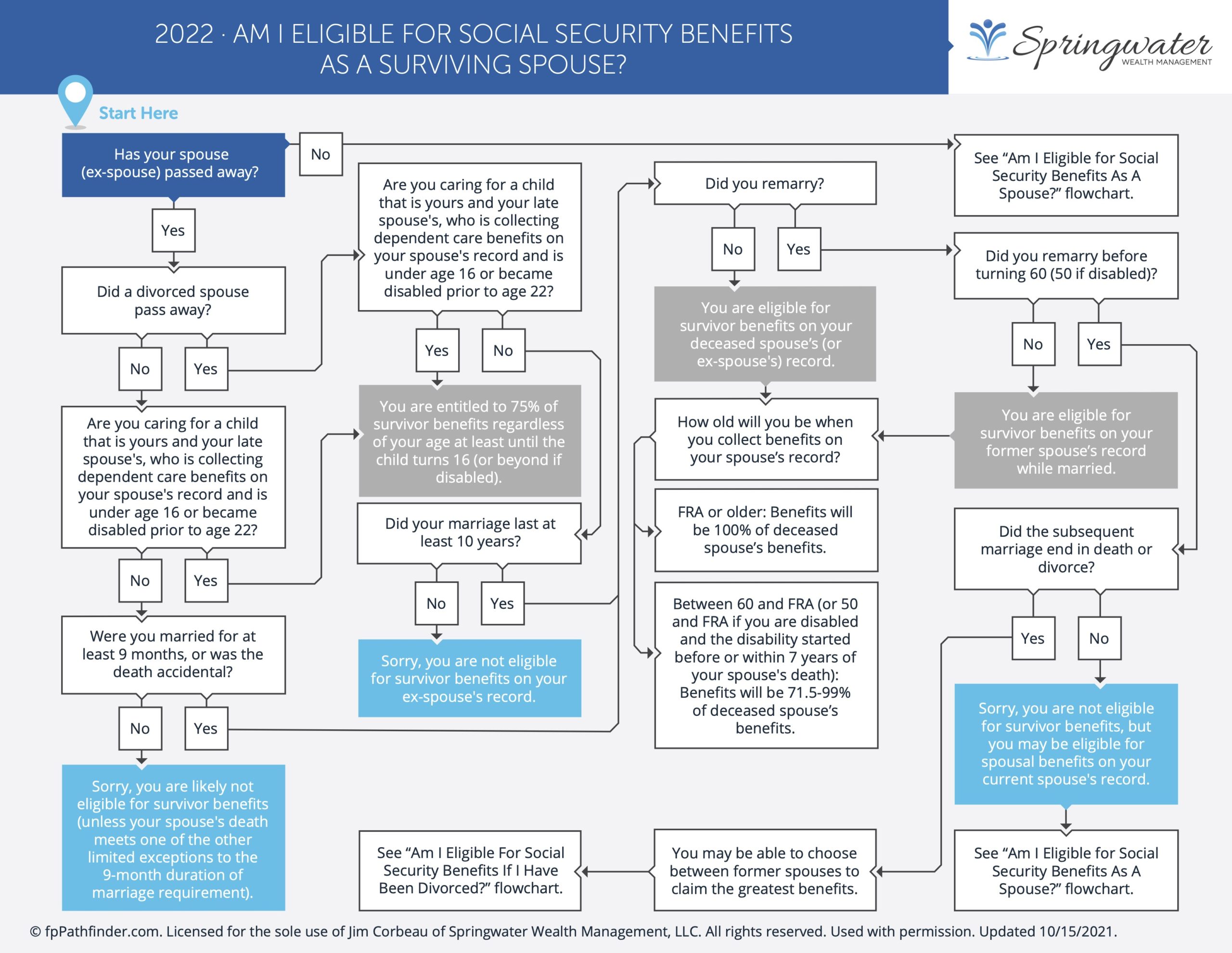America’s Social Security program provides economic security to millions. The Social Security program provides you with a source of income when you retire, or if you can’t work due to a disability. It can also provide benefits that support your legal dependents in the event of your death.
Understanding the complex world of Social Security benefits can help you make smart choices for your financial future, and ensure you’ll enjoy a comfortable and secure retirement.
How Social Security Benefits Are Determined
Social Security replaces a percentage of your pre-retirement income, based on your lifetime earnings. The portion of your pre-retirement wages that Social Security replaces is based on your highest inflation-adjusted 35 years of earnings and varies depending on how much you earn and when you choose to start benefits.
If you qualify for benefits on your own earnings record, you’ll be entitled to receive them as soon as you’re eligible. Eligibility is based on your age. The earliest you can claim your benefit is 62, but it will be a reduced benefit. Your so-called “full retirement age” is when you’re eligible for an unreduced Social Security benefit. Your full retirement age depends on when you were born. If you’re willing and able to delay the start of your benefits, you can receive a higher monthly payment.
When Should I Claim My Social Security Benefit?
It’s not always straight-forward to determine when you should apply for your Social Security benefit. That’s because the strategy that produces the largest lifetime benefit for you may not fit with your overall financial and retirement plan. For example, delaying Social Security beyond full retirement age means you’ll need other financial resources to provide income for the period between the date you stop working and that when your higher benefits begin. And delaying your benefits well beyond full retirement age generally only makes sense if you plan to live well into your 80s or 90s.
Social Security for Single Women
As a single woman, you’ll be able to claim benefits based on your own earnings record, and you’ll be able to receive them as soon as you’re eligible.
Ideally, you’ll determine the best claiming strategy – early, full retirement age, or delayed – based on a retirement plan that’s been created especially for you.
Find a CFP® professional to help you build a retirement plan
Social Security for Divorced Women
If you were married, you may have some additional flexibility when it comes to claiming Social Security benefits, even if you only worked for a few years – or never worked at all – under Social Security.
Social Security offers something called an “ex-spousal benefit”, which you may be eligible to receive, depending on a number of factors.
So, the best strategy is to claim the greater of your own benefit, or a ex-spousal benefit.
To be eligible to claim an ex-spousal benefit:
- Your ex-spouse must be entitled to Social Security retirement or disability benefits
- Your marriage must have lasted at least 10 years
- You must be unmarried (though it doesn’t matter if your ex-spouse has remarried)
- You must be at least 62 years old
If you were married (for at least 10 years) and divorced more than once, you can claim a divorced spousal benefit on the ex-spouse with the largest benefit.
The maximum divorced spousal benefit is 50% of the ex-spouse’s benefit at full retirement age. If your ex-spouse delays filing for benefits beyond full retirement age, their benefit will increase, but your ex-spousal benefit will not.
To receive your maximum ex-spousal benefit, you should wait to claim until you reach your full retirement age.
The following flowchart can help you understand whether you’re eligible for an ex-spousal benefit (clicking on image opens chart in new tab):
Social Security for Widowed Women
If you’re the widow of a spouse who worked long enough under Social Security, you can receive a benefit that is the greater of your own, and that of your deceased spouse’s – called a survivor benefit.
How soon can I claim a benefit?
You can receive a reduced benefit as early as age 60, and if you qualify for benefits on your own earnings record, switch to your own (reduced) benefit at age 62.
What if I’m disabled?
If you have a disability, and your disability started before or within seven years of your deceased spouse’s death, you can begin receiving benefits as early as age 50.
What if I have kids at home?
You can receive survivors benefits at any age, if you haven’t remarried and you take care of your deceased spouse’s child who is under age 16 or who has a disability and receives child’s benefits.
What if I remarry?
If you remarry after you reach age 60 (or age 50 if you have a disability), your remarriage will not affect your eligibility for survivors benefits.
As a widow you can’t apply online for your Social Security benefit – you need to contact Social Security directly, either by phone or in-person.
The following flowchart can help you understand whether you’re eligible for a survivor benefit (clicking on image opens chart in new tab):
What if my ex-spouse has died?
Many widows don’t know that it’s possible to claim a survivor benefit if your ex-spouse has died.
If your ex-spouse has died, you may be entitled to receive Social Security survivor benefits, which have different eligibility rules than those for a living ex-spouse. For example, you can apply for benefits as early as age 60, rather than at 62. And if you remarry after age 60, your remarriage won’t affect your eligibility to receive a survivor benefit.
The percentage of your deceased ex-spouse’s benefit that you’re entitled to receive depends on a number of factors:
- If you’ve reached your full retirement age, you’re eligible to receive 100%
- If you’re at least 60 but not yet at full retirement age, you’re eligible to receive between 71.5% and 99%
- If you’re 50 to 59 and disabled, you’re eligible to receive 71.5%
As a surviving divorced spouse you can’t apply online for your Social Security benefit – you need to contact Social Security directly, either by phone or in-person.
The following flowchart can help you understand whether you’re eligible for a deceased ex-spousal benefit (clicking on image opens chart in new tab):
Getting Help From an Advisor
If you need help with Social Security planning, consider working with a Certified Financial Planner™ (CFP®). Advisors who hold this designation had to meet rigorous educational, experience and ethics requirements.


